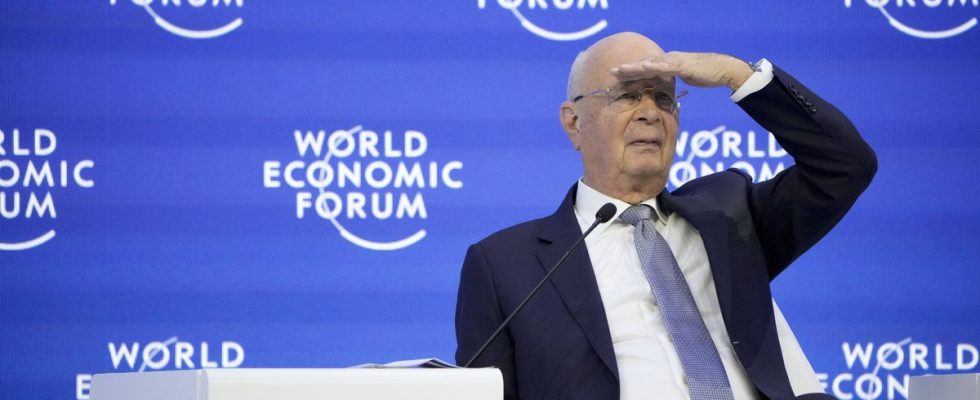He is a “villain” worthy of James Bond in the conspiracy theories of the Great Reset, this plan of the global elite whose goal would be to enslave humanity. It is also associated with this cinema reference. Klaus Schwab, the founder and chairman of the World Economic Forum, reportedly “decided that we ‘need to get used to’ a complete erosion of privacy: ‘If you have nothing to hide, you shouldn’t be afraid.’ » These sentences are repeated over and over on social networks like X, Facebook, TikTok.
A question generally accompanies the publications and questions the German economist’s lack of democratic legitimacy: “Does anyone remember electing this clown as de facto dictator of the world?” »
To support the point, a video montage accompanies the publications. It has become particularly viral since September 3, where a post has been viewed 1.2 million times on X and shared more than 6,100 times. In this 40-second extract, Klaus Schwab explains that “in this new world, we must accept total transparency”. Then: “Everything will be transparent, you have to get used to it, you have to behave like this. » And finally: “it becomes integrated into your personality, but if you have nothing to hide, you shouldn’t be afraid. »
Overwhelming, then? But it is actually a montage: the sentences have been cut and taken out of context.
FAKE OFF
These extracts come from an interview given in French seven years ago by Klaus Schwab on Swiss Radio Television (RTS). On January 10, 2016, the founder of the World Economic Forum was interviewed by presenter Darius Rochebin, as the Davos Forum opened. The 25-minute interview is available in its entirety on the RTS YouTube channel.
Klaus Schwab first speaks on the occasion of the release of his book, The fourth industrial revolution, where he shares his vision of the changes that new technologies will bring to our societies. It is in this context that he makes the remarks on total transparency: it is not a decision that he imposes on the world, but a reflection on the role of technologies in our lives. Such a position can obviously give rise to legitimate debates on the protection of privacy, but nothing is “decided” on the TV set.
Chips implanted in clothing or the brain, role of artificial intelligence: he discusses these subjects of future technologies, the hopes or threats linked to these possible changes. “The industrial revolution will change everything, we are not aware of the impact and the speed that this revolution will have,” he underlines for example.
“Your cell phone must be tapped, do you think about it? »
He welcomes the prospect of an interconnected world, the creation of new communities, mentioning Facebook. “That’s the good sides, but the bad sides, it’s a police control that’s possible thanks to that, does that scare you? », asks the presenter. “No, that doesn’t scare me, but worry,” replies Klaus Schwab (from 7 minutes). What is clear is that we must accept transparency, I would even say total transparency. Everything will be transparent and you have to get used to it, you have to behave like this. What is going to be important is that there is no abuse, that is, the legal system must be in place to protect me from abuse when I do something that is correct and which is transparent. »
Then, Darius Rochebin asks him: “You speak on the phone to Mrs. Merkel, to Obama, to others. If I were a general of the FSB, the CIA or the Mossad, obviously your phone must be tapped, do you think about that when you call? » And it is to this question that the president of the Forum answers: “Yes naturally, it becomes integrated into your personality, but if you have nothing to hide, you should not be afraid. » There is therefore no question of forcing the world to share this point of view. Asked again about total transparency, he believes that the latter “has the possibility of making us more responsible for what we do”.

